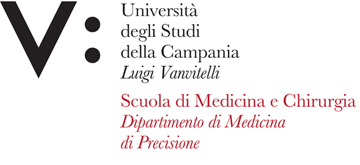Marzia DI DONATO
Insegnamento di PATOLOGIA GENERALE E FISIOPATOLOGIA
Corso di laurea in TECNICHE DI LABORATORIO BIOMEDICO (ABILITANTE ALLA PROFESSIONE SANITARIA DI TECNICO DI LABORATORIO BIOMEDICO)
SSD: MED/04
CFU: 5,00
ORE PER UNITÀ DIDATTICA: 50,00
Periodo di Erogazione: Primo Semestre
Italiano
| Lingua di insegnamento | ITALIANO |
| Contenuti | Eziologia generale. Patologia cellulare: infiammazione; apoptosi e necrosi; patologia della riproduzione e crescita cellulare. Oncologia. Principali malattie metaboliche. |
| Testi di riferimento | Robbins: Le basi patologiche delle malattie; |
| Obiettivi formativi | Il Corso introduce lo studente alla comprensione dei meccanismi e dei fenomeni che sono alla base delle patologie umane. |
| Prerequisiti | Buone conoscenze di Biologia |
| Metodologie didattiche | lezioni frontali con l'ausilio di 'slides' o altro materiale informatico. |
| Metodi di valutazione | Una prova intercorso ed esame finale orale. |
| Altre informazioni | Insegnamento Frontale con i Prof. Carafa e Di Donato |
| Programma del corso | - Eziologia; Adattamenti cellulari; apoptosi e necrosi |
English
| Teaching language | Italian |
| Contents | The course aims to allow the student to know and understand the etiology and pathogenesis of pathological processes. |
| Textbook and course materials | Patologia generale e Fisiopatologia generale (Pontieri) |
| Course objectives | At the end of this teaching the student: |
| Prerequisites | Good knowledge of Biochemistry, Physiology, Anatomy and Biology |
| Teaching methods | For each group of topics, teaching activities are planned to consolidate learning. In particular, they are aimed at training students in the ability to apply knowledge and understanding, in the autonomy of intellectual production and critical judgment (e.g. self-evaluation activities), in communication skills (e.g. drafting short written essays) and in the ability to learning (e.g. independently consulting sources). |
| Evaluation methods | oral exams |
| Other information | Lessons held by Prof. Carafa and Di Donato |
| Course Syllabus | • general etiology |








